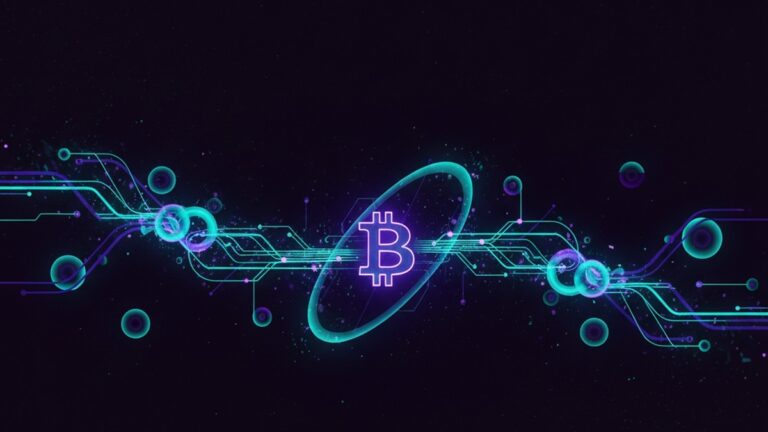Bitcoin’s decentralized ethos is facing yet another test as tensions rise over the future of Ordinals, a protocol that enables non-fungible token (NFT) functionality on the Bitcoin blockchain. Leonidas, a prominent figure in the Ordinals community, has hinted at the possibility of forking Bitcoin Core. This potential move stems from concerns about censorship following discussions among Bitcoin Core developers regarding updates that could impact Ordinals and Runes transactions.
Understanding Ordinals and Runes
Ordinals have been a controversial yet innovative addition to Bitcoin’s ecosystem, allowing users to inscribe digital artifacts directly onto the blockchain, a feature traditionally associated with Ethereum’s NFT capabilities. By leveraging the smallest unit of Bitcoin, satoshis, Ordinals enable the creation and exchange of digital collectibles. Runes, on the other hand, are a set of rules for organizing and indexing these digital artifacts, effectively expanding the utility of Bitcoin beyond its primary use as a digital currency.
The potential update in question would optimize Bitcoin’s transaction processing capabilities, inadvertently affecting how Ordinals and Runes operate. While some argue that increasing efficiency is paramount, others see it as a threat to the burgeoning Ordinals community.
The Fork in the Road
Leonidas, who has long championed the integration of NFTs into Bitcoin, was unequivocal in his response to the possibility of reversing the update. “If developers choose to limit what we’ve built, we won’t hesitate to fork Bitcoin Core,” he stated in a recent community discussion. The mere suggestion of a fork underscores the deep divisions within the Bitcoin community over the blockchain’s future direction.
Forking, which involves creating a new version of the blockchain, isn’t a decision to be taken lightly. The process would require consensus among miners, developers, and users, potentially leading to a split in the community similar to the Bitcoin Cash fork of 2017. Such a move could result in two separate cryptocurrencies: one maintaining the original Bitcoin protocol and another incorporating the Ordinals functionalities.
Censorship Concerns
Central to the debate are concerns about censorship. The Ordinals community views any attempt to limit their transactions as an infringement on the openness and neutrality that Bitcoin was founded upon. “Censorship in any form is a slippery slope,” Leonidas cautioned, emphasizing the need to preserve the blockchain’s ability to facilitate diverse use cases.
Bitcoin Core developers, however, argue that their intent is not to censor but to enhance the network’s scalability and security. They’ve pointed to the potential for Ordinals transactions to bloat the blockchain, increasing fees and slowing down the network for all users. By optimizing transaction processing, developers believe they can ensure Bitcoin remains accessible and efficient for its primary purpose as a peer-to-peer electronic cash system.
Balancing Innovation and Tradition
The crux of the issue lies in balancing Bitcoin’s traditional role with the innovative applications that protocols like Ordinals introduce. While purists argue that Bitcoin should remain focused on financial transactions, proponents of Ordinals see it as a natural evolution that could broaden the platform’s appeal.
Bitcoin’s decentralized governance model means that no single entity can dictate its direction, making consensus crucial. Leonidas’ proposal to fork Bitcoin Core highlights the challenges in reaching agreement, especially when innovations challenge the status quo. The potential fork raises questions about the nature of progress within a decentralized system: Should Bitcoin adapt to new technologies, or should it remain steadfast in its original vision?
Community Reactions
The broader Bitcoin community has responded with a mix of support and skepticism. Some users, particularly those invested in the NFT space, see the potential fork as an opportunity to expand Bitcoin’s capabilities without compromising its core principles. “Bitcoin’s adaptability is its strength,” said one Ordinals user. “Embracing change is how we stay relevant.”
Conversely, others are wary of the implications a fork could have on Bitcoin’s reputation and stability. “We’ve been down this road before,” noted a Bitcoin Core developer, referencing past forks. “Fragmentation only weakens the network.”
Looking Ahead
As discussions continue, all eyes are on the upcoming Bitcoin Core developer meeting, where the fate of the update will be a key agenda item. Leonidas and his supporters are expected to make their case for preserving Ordinals’ functionality, advocating for a solution that accommodates both innovation and network integrity.
Meanwhile, the possibility of a fork looms large, a reminder of the challenges inherent in Bitcoin’s decentralized governance. Whether the community can find a middle ground that satisfies both sides remains to be seen, but one thing is clear: the debate over Ordinals is far from over.
In the ever-evolving world of cryptocurrency, the balance between innovation and tradition is delicate. As Bitcoin navigates these choppy waters, the decisions made today will undoubtedly shape the future of the entire ecosystem.

Steve Gregory is a lawyer in the United States who specializes in licensing for cryptocurrency companies and products. Steve began his career as an attorney in 2015 but made the switch to working in cryptocurrency full time shortly after joining the original team at Gemini Trust Company, an early cryptocurrency exchange based in New York City. Steve then joined CEX.io and was able to launch their regulated US-based cryptocurrency. Steve then went on to become the CEO at currency.com when he ran for four years and was able to lead currency.com to being fully acquired in 2025.


